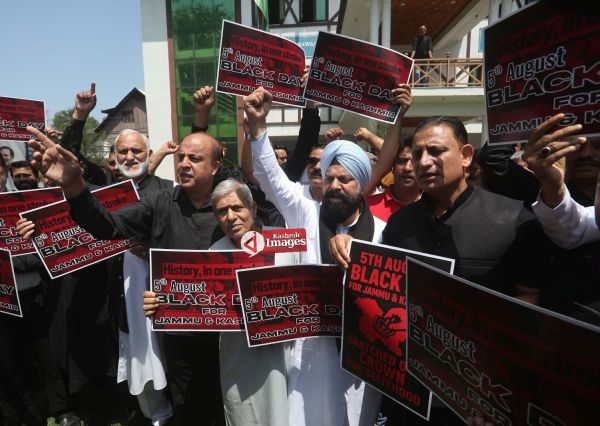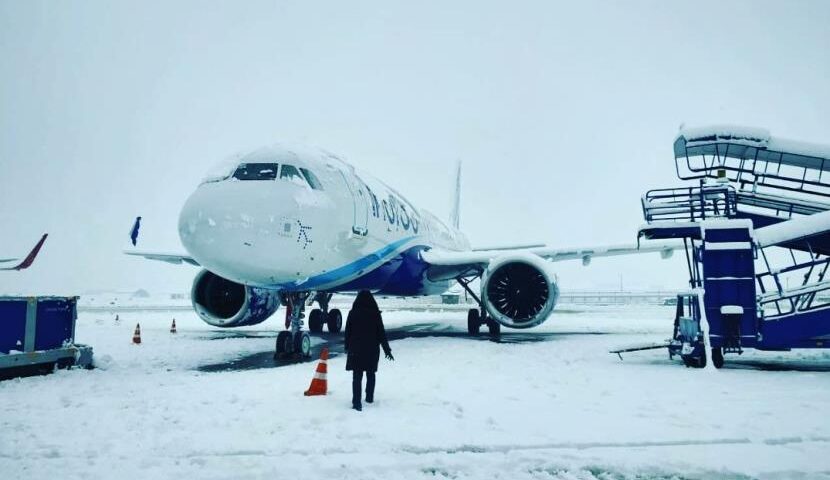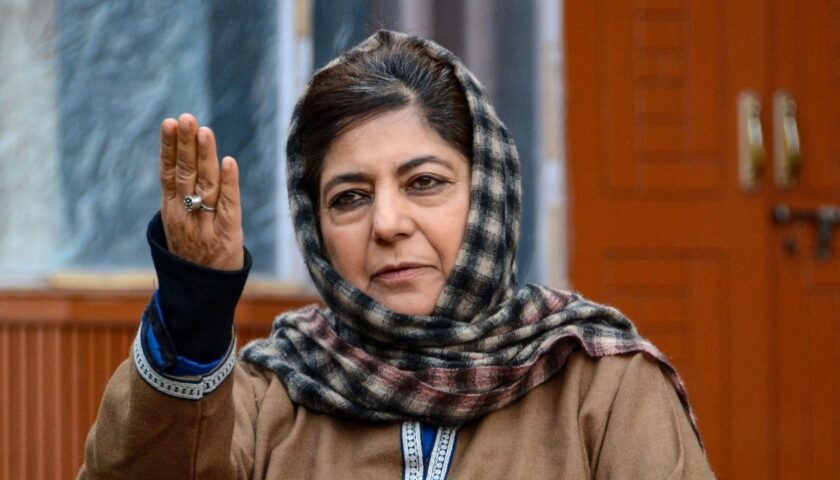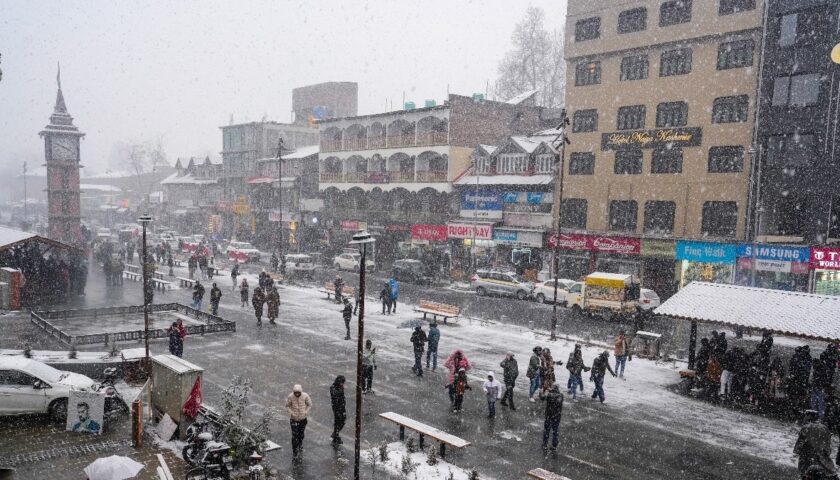Statehood Demand Intensifies as PDP, NC, Congress Accuse Centre of Betrayal; BJP Celebrates ‘Integration and Development’
By: Javid Amin | Srinagar | 06 Aug 2025
Six years have passed since the Indian Parliament revoked Article 370, stripping Jammu and Kashmir of its special status and bifurcating it into two Union Territories. On this sixth anniversary, the region stands as a divided landscape of celebration and dissent, where competing narratives clash on the ground and in public memory. The anniversary sparked widespread protests across the Valley and Jammu, with opposition parties calling it a day of “constitutional betrayal” while the ruling BJP marked it as a triumph of “integration, equality, and development.”
Political Protests and Clampdowns
The National Conference (NC), Peoples Democratic Party (PDP), and Congress jointly raised their voices in a synchronized campaign across Srinagar, Jammu, and other districts. These protests were not only symbolic but also a tangible demonstration of growing political anxiety and disillusionment in the region.
In Srinagar, NC workers led by provincial president Showkat Ahmad Mir gathered at the party headquarters, Nawa-i-Subah. They attempted to march towards the iconic Lal Chowk but were stopped by police forces. Several party members were detained, and a minor scuffle left senior leader Salman Sagar with injuries. NC described the action as “authoritarian silencing of democratic rights.”
At the PDP headquarters, party president Mehbooba Mufti was barred from stepping out to lead a peaceful march. Her daughter, Iltija Mufti, voiced outrage, stating, “Our office was surrounded, exits blocked by CRPF vehicles, and our workers imprisoned like animals. This is not democracy.”
The Congress Party launched protests in all 20 districts of the Union Territory under the banner of its “Hamari Riyasat, Hamara Haq” campaign. In Jammu, Congress leaders garlanded the statue of Maharaja Hari Singh as a symbolic reminder of Jammu & Kashmir’s pre-1947 autonomy and subsequent constitutional position. J&K Congress president Tariq Hameed Karra said, “The people of J&K feel like second-class citizens in their own country. What was promised has been denied.”
Symbolic Resistance and Blackout Protest
In a powerful yet peaceful act of resistance, PDP president Mehbooba Mufti called for a 15-minute blackout at 9 PM on August 5. She urged residents to switch off lights as a symbolic act of mourning and remembrance for the autonomy lost. The call resonated across the Valley as videos on social media showed entire neighborhoods in Pulwama, Sopore, Anantnag, and Srinagar shrouded in darkness.
The symbolic blackout gained traction even among apolitical citizens, reflecting a collective unease and disillusionment. For many Kashmiris, the act was more than symbolic—it was a quiet assertion of identity and resistance.
BJP’s Celebratory Narrative: “Integration Day”
In stark contrast, the Bharatiya Janata Party (BJP) celebrated the day with flag marches, youth rallies, and public events across the region. For the BJP, August 5 is seen as a historic milestone that brought J&K into the full fold of Indian constitutional democracy.
Ajaz Hussain, BJP youth leader, led a tricolour bike rally through Lal Chowk, stating, “There is no more stone-pelting, no Pakistan flags, no separatist shutdowns. The Valley is breathing freely.”
Sat Sharma, BJP J&K president, echoed this optimism: “Today we celebrate constitutional unity. Article 370 was an impediment to progress. Its removal has unlocked development, equality, and peace.”
However, critics argue that development projects have largely failed to translate into tangible livelihood opportunities, with youth unemployment still alarmingly high. The BJP counters this narrative with statistics on new roads, increased tourist inflow, and Panchayat elections.
Legal Echoes: Statehood Restoration Plea in Supreme Court
Adding judicial gravity to the political demands, the Supreme Court is set to hear a plea on August 8, 2025, regarding the restoration of J&K’s statehood. The application, filed by academic Zahoor Ahmad Bhat and activist Khurshaid Ahmad Malik, seeks a time-bound commitment from the Centre.
A five-judge Constitution Bench had, on December 11, 2023, upheld the abrogation of Article 370 and directed that Assembly elections be held by September 2024. While elections were eventually conducted, resulting in a National Conference-Congress alliance government, the statehood question was left hanging.
The court at the time acknowledged the Centre’s statement that statehood would be restored but avoided ruling on whether converting J&K into two Union Territories was constitutionally valid. The latest plea revives this legal ambiguity and underscores the constitutional urgency.
Senior Advocate Gopal Sankaranarayanan, appearing for the petitioners, stressed that the prolonged UT status undermines the basic structure of Indian federalism. The petition reads, “Non-restoration of statehood in a timebound manner violates the idea of federalism which forms a part of the basic structure of the Constitution of India.”
Opposition Accuses Centre of Betrayal
The opposition parties have turned the sixth anniversary into a day of reckoning. Addressing a joint press conference in Jammu, senior leaders from NC, PDP, and Congress accused the Centre of backtracking on its promises.
“Where is the economic revival we were promised? Where are the jobs? Where is the statehood?” asked Omar Abdullah, NC vice-president and current chief minister. “The Centre promised dignity and development, but delivered silence and suppression.”
Mehbooba Mufti said, “The people of J&K were not consulted before such a drastic decision was imposed upon them. We will not rest until our rights are returned.”
Congress leader Tariq Karra added, “This is not just about J&K. It’s about the idea of India—an idea that accommodates diversity, federalism, and dignity.”
The Public Pulse: Between Resignation and Resistance
Public sentiment in Kashmir remains a complex mosaic. While some residents have embraced the new administrative order for its promises of stability and economic progress, others remain skeptical. The emotional scars of August 5, 2019, still linger.
A 25-year-old Srinagar university student said, “Yes, roads have improved, but what about the trust deficit? I don’t feel represented.”
Shopkeepers in Anantnag spoke of frequent searches and surveillance, while a farmer in Kupwara said he was more worried about water for his apple orchards than politics.
Yet, despite fears and fatigue, the protests on August 5, 2025, revealed that the demand for dignity, identity, and statehood remains alive—perhaps more than ever.
Bottom-Line: The Road Ahead for J&K
The sixth anniversary of Article 370’s abrogation reveals a region at a political and constitutional crossroads. For the BJP, it is a moment of celebration. For the opposition and many residents, it is a solemn day of resistance. For the judiciary, it is a pending question of constitutional propriety.
As the Supreme Court gears up to hear the statehood plea on August 8, all eyes will once again turn to New Delhi. Whether through the courtroom, the ballot, or the street, the people of Jammu and Kashmir continue to assert their place in the democratic fabric of India.




